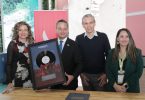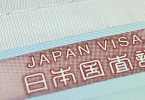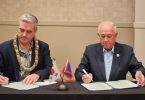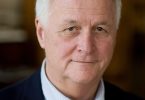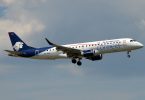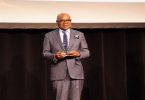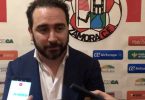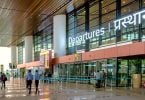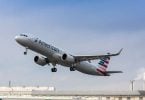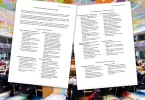At the Annual General Meeting (AGM) held today at the Jahrhunderthalle Frankfurt, Fraport AG’s executive board chairman Dr. Stefan Schulte explained to shareholders the progress achieved during fiscal year 2015. His summarized Fraport’s successful figures for 2015, which were in keeping with the company’s expectations. Revenue advanced noticeably by 8.5 percent to 2.6 billion euros. Climbing at a similar rate of 7.4 percent, the Group’s operating profit (EBITDA) grew by almost 60 million euros to some 850 million euros. The Group result increased at an even stronger rate of 18 percent, or 45 million euros, to reach a new record value of almost 300 million euros.
The basis for the strong financial development at the Fraport’s home location in Frankfurt was the growth in passenger figures, especially intercontinental traffic, as well as strong net retail income per passenger, which jumped by 19 cents to 3.62 euros. Despite diverging results at various locations, Fraport’s external business contributed positively to financial success in fiscal 2015. In particular, results from the airports in Lima (LIM) and Ljubljana (LJU), along with the U.S.-based Airmall retail subsidiary more than compensated for the weak performance at Antalya (AYT) and St. Petersburg (LED). The improved financial result also contributed to good annual results in 2015, due to the low interest expenses in the course of lower net debts and declining interest rates. Fraport’s CEO expressed his thanks to all the employees for their outstanding contribution every day of the year in serving passengers and airlines: “They are making it possible for us to present such great results to our shareholders,” Schulte emphasized.
With a view towards future challenges, Schulte elaborated on Fraport’s new mission statement. The new corporate slogan – “Gute Reise! We make it happen” – redefines Fraport’s role as an airport manager. To meet the growing competition of international airports, Fraport is focusing even more on the increasing and diverging needs of customers. This includes consistently advancing service initiatives launched in the last few years to make the passenger’s stay at Fraport airports even more pleasant and enjoyable. This is also accompanied by intensified digitalization for managing the airport and enhancing the customer experience. As one of the most important examples Schulte mentioned is the new Frankfurt Airport App, which features information and orientation help in various languages, an online-shopping platform for products from the airport shops, as well as a customer loyalty program.
Furthermore, the advanced development of Frankfurt Airport’s infrastructure still remains one of the most important tasks of Fraport. Among the numerous measures, Schulte stressed that construction of Terminal 3 is currently the most significant. The construction activities are on schedule. Excavation work is finished and further construction steps are being tendered or are already in the planning stage. Moreover, Fraport wants to maintain and strengthen its role as an international pioneer in the field of aviation noise abatement. At Frankfurt Airport, the “noise-intermission model” will move from the test phase into regular operations. In addition, Fraport wants to emphasize the noise-related component of airport charges.
Along with the Frankfurt home location, Fraport’s international business gained in importance during 2015. By the end of 2016, Fraport expects to take over operations of 14 regional airports in Greece. As a next step, the already-signed concession agreements for the regional airports have to be ratified by the Greek parliament. Schulte described this as a win-win project for both sides: “We have presented our company and project plans, both of which have been well received. We consider the Greek market, especially in terms of tourism, still to be very attractive. The closing for the Greek regional airports is expected by the end of the year.”
Schulte reported that the outlook for passenger growth has been affected by a noticeable slowdown in travel bookings – above all for vacation travel, which can be attributed partly to concerns about terror attacks around the world. Fraport expects Frankfurt Airport’s passenger traffic to rise by one to three percent in 2016 – FRA’s 80th anniversary year. Since the beginning of the year, the retail business has been dampened by the revaluation of the euro and a decline in passenger traffic to China, Russia and Vietnam.
Passengers traveling to these destinations contribute significantly to Fraport’s retail result. Schulte added that framework conditions have become increasingly difficult – in other words, one has to sail through rough seas now. Commenting on the outlook for the entire year, Schulte said, “We must stretch farther in order to reach our goals.” Fraport expects the EBITDA to range slightly above the previous year’s level, up to 30-plus million euros. The Group result is expected to equal or exceed the 2015 level. This will enable the dividend recommendation for the 2016 fiscal year to remain stable.






